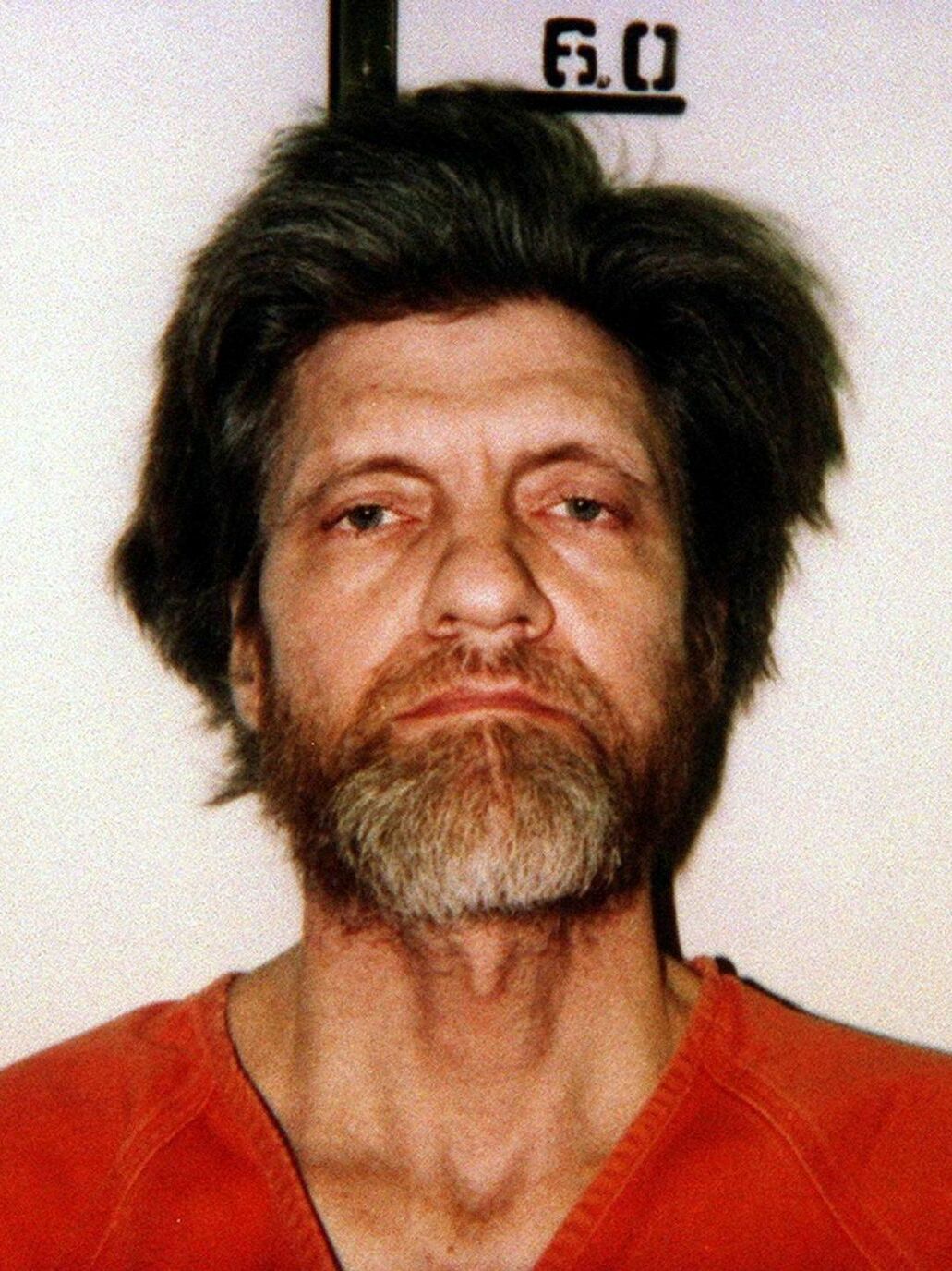
Ted Kaczynski
Theodore John Kaczynski (/kəˈzɪnski/ kə-ZIN-skee; May 22, 1942 – June 10, 2023), also known as the Unabomber (/ˈjuːnəbɒmər/ YOO-nə-bom-ər), was an American mathematician and domestic terrorist.[1][2] He was a mathematics prodigy, but abandoned his academic career in 1969 to pursue a primitive lifestyle.
"Unabomber" redirects here. For other uses, see Unabomber (disambiguation).
Ted Kaczynski
June 10, 2023 (aged 81)
- Unabomber
- FC
Mathematics professor
David Kaczynski (brother)
10 counts of transportation, mailing, and use of bombs; three counts of first-degree murder
8 consecutive life sentences without the possibility of parole
1978–1995
3
23
April 3, 1996
Boundary Functions (1967)
Between 1978 and 1995, Kaczynski murdered three people and injured 23 others in a nationwide mail bombing campaign against people he believed to be advancing modern technology and the destruction of the natural environment. He authored Industrial Society and Its Future, a 35,000-word manifesto and social critique opposing all forms of technology, rejecting leftism, and advocating for a nature-centered form of anarchism.[3]
In 1971, Kaczynski moved to a remote cabin without electricity or running water near Lincoln, Montana, where he lived as a recluse while learning survival skills to become self-sufficient. After witnessing the destruction of the wilderness surrounding his cabin, he concluded that living in nature was becoming impossible and resolved to fight industrialization and its destruction of nature through terrorism. In 1979, Kaczynski became the subject of what was, by the time of his arrest in 1996, the longest and most expensive investigation in the history of the Federal Bureau of Investigation (FBI). The FBI used the case identifier UNABOM (University and Airline Bomber) before his identity was known, resulting in the media naming him the "Unabomber".
In 1995, Kaczynski sent a letter to The New York Times promising to "desist from terrorism" if The Times or The Washington Post published his manifesto, in which he argued that his bombings were extreme but necessary in attracting attention to the erosion of human freedom and dignity by modern technologies.[4] The FBI and U.S. Attorney General Janet Reno pushed for the publication of the essay, which appeared in The Washington Post in September 1995. Upon reading it, Kaczynski's brother, David, recognized the prose style and reported his suspicions to the FBI. After his arrest in 1996, Kaczynski—maintaining that he was sane—tried and failed to dismiss his court-appointed lawyers because they wished him to plead insanity to avoid the death penalty. He pleaded guilty to all charges in 1998 and was sentenced to eight consecutive life terms in prison without the possibility of parole. In June 2023, Kaczynski died by suicide in prison.[5][6]
Legacy
Kaczynski has been portrayed in and inspired artistic works in popular culture.[157] These include the 1996 television film Unabomber: The True Story, the 2011 play P.O. Box Unabomber, the 2012 documentary Stemple Pass, Manhunt: Unabomber, the 2017 season of the television series Manhunt and the 2021 film Ted K.[158][159][160][161][162] He was portrayed by Sharlto Copley and Paul Bettany in Ted K and Manhunt respectively. The moniker "Unabomber" was also applied to the Italian Unabomber, a terrorist who conducted attacks similar to Kaczynski's in Italy from 1994 to 2006.[163] Prior to the 1996 United States presidential election, a campaign called "Unabomber for President" was launched with the goal of electing Kaczynski as president through write-in votes.[164]
In his book The Age of Spiritual Machines (1999), futurist Ray Kurzweil quoted a passage from Kaczynski's manifesto Industrial Society and Its Future.[165] Kaczynski was referenced by Bill Joy, co-founder of Sun Microsystems, in the 2000 Wired article "Why the Future Doesn't Need Us". Joy stated that Kaczynski "is clearly a Luddite, but simply saying this does not dismiss his argument".[166][167] Professor Jean-Marie Apostolidès has raised questions surrounding the ethics of spreading Kaczynski's views.[168] Various radical movements and extremists have been influenced by Kaczynski.[100] People inspired by Kaczynski's ideas show up in unexpected places, from nihilist, anarchist, and eco-extremist movements to conservative intellectuals.[47] Anders Behring Breivik, the far-right perpetrator of the 2011 Norway attacks,[169] published a manifesto which copied large portions from Industrial Society and Its Future, with certain terms substituted (e.g., replacing "leftists" with "cultural Marxists" and "multiculturalists").[170][171]
Over twenty years after Kaczynski's imprisonment, his views had inspired an online community of primitivists and neo-Luddites. One explanation for the renewal of interest in his views is the television series Manhunt: Unabomber, which aired in 2017.[172] Another explanation is that a new generation has adopted Kaczynski's anti-tech philosophy because they believe his reasoning is sound and his "observations about technology and the environment have proven to be prescient".[173] Kaczynski is also frequently referred to by ecofascists online.[174] Although some militant fascist and neo-Nazi groups idolize him, Kaczynski described fascism in his manifesto as a "kook ideology" and Nazism as "evil".[172] Merrick Garland, who would later serve as United States Attorney General, has cited the Unabomber case as among the most important cases he worked on.[175]